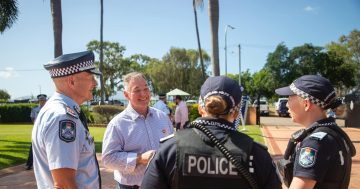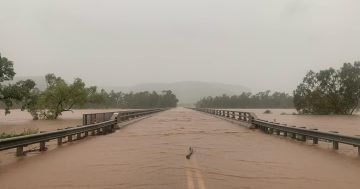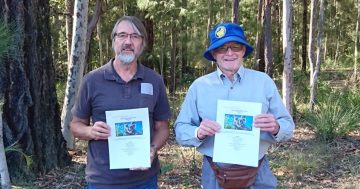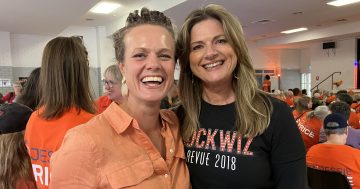 The Queensland Parks and Wildlife Service (QPWS) is linking new dingo deterrent fences, patrols and a community education push to ensure safety for residents and visitors on K’gari (Fraser Island).
The Queensland Parks and Wildlife Service (QPWS) is linking new dingo deterrent fences, patrols and a community education push to ensure safety for residents and visitors on K’gari (Fraser Island).
The Service’s safety blitz follows a period of increased aggression by the island’s dingoes which culminated in an eight-year-old boy being bitten on the legs by two of the animals earlier this year.
Acting Regional Director at QPWS, Stephen Price said he was thankful the boy only received minor injuries, but it could have easily been worse.
“We have put together a comprehensive plan to actively manage the dingoes in the Wathumba camp-ground area,” Mr Price said.
“We are investing around $60,000 in infrastructure to improve safety including two new fences around the Wathumba Creek camping area and the day-use site.”
He said the QPWS would also be installing food safe lockers at the Teebing camping area as this was heavily utilised by boat campers.
Mr Price said the infrastructure upgrades would be complemented by extra patrols by QPWS rangers and extended camp-ground closures.
“The Wathumba Creek camp-grounds were closed in response to the attack, but we have decided to extend the closures until 1 July,” he said.
“In addition, we have closed Wathumba and Platypus Bay roads, and rangers will be conducting patrols of the area including the Bowal, Awinya Creek, Bowarrady Creek, Woralie Creek and Moon Point camping areas.”
Mr Price said the community also needed to take steps to ensure their own safety around dingoes.
“We’ve seen some examples of really poor behaviour around dingoes recently — including people deliberately feeding and approaching them,” he said.
“We need people to understand that feeding dingoes is not only extremely dangerous, but also detrimental to them.”
He said that as dingoes became more reliant on visitors for food, the more they would approach people and could become aggressive.
“In the long run this means that we may have to take difficult decisions to appropriately manage the risk posed by an aggressive dingo, and that includes potentially euthanising the animal — something we definitely don’t want to have to do,” Mr Price said.











